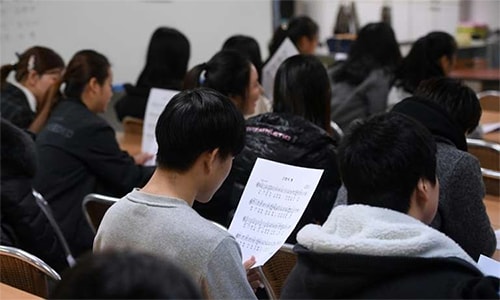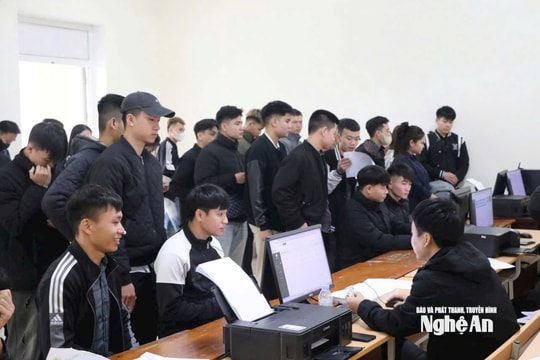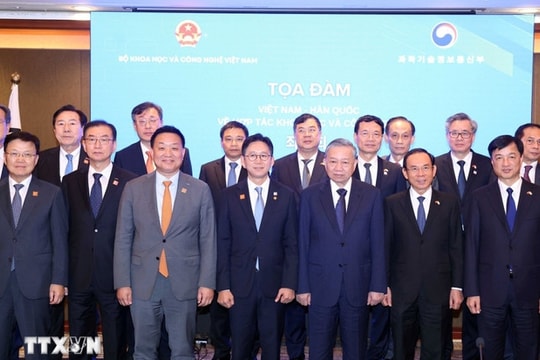South Korea shocked by North Korean mother and child suspected of starvation in Seoul
When the bodies of the mother and child were discovered on July 31, their apartment in southwest Seoul had no food left except a few packets of chili powder.
|
North Korean defectors attend classes to adapt to South Korean society. Photo:AFP. |
The apartment of Han, 42, and her 6-year-old son, who were reported to have a strange smell, was inspected by management and found long dead. Forensic experts have not yet released the results of their autopsy, but Seoul police found no signs of poisoning or suicide. South Korean authorities said the North Korean defectors likely starved to death.
Han defected to South Korea 10 years ago, lives in a rented apartment in Seoul, and divorced her husband, a dual Chinese-Korean citizen, earlier this year. Aside from child support of about $82 a month, Han has not applied for other benefits to which she is entitled.
Police say Han withdrew the last of 3,858 won ($3) from his bank account in May. The water was cut off to the apartment due to unpaid bills. The refrigerator was nearly empty, save for a few bags of chili powder.
The deaths of the mother and child shocked South Koreans and left them wondering why one of Asia's richest countries could treat its northern compatriots like that.
“Where were we?” Yonhap news agency asked the entire South Korean people on August 14. “Did we have no chance to save them?” wrote the Seoul-based Reader’s News.
"The fact that a North Korean defector suffered from hunger and possibly died for this reason in Seoul brings tears to my eyes," said Moon Seong-ho, spokesman for the opposition Liberty Korea Party (LKP).
In the face of public backlash following the deaths of Han and her mother, the South Korean Unification Ministry pledged to address "blind spots" that could prevent North Korean defectors from receiving the help they need.
"The government needs to inform them more actively about the social security system they can use to make a living. It also needs to monitor the financial situation of North Korean defectors living in South Korea more closely," said Lim Jae-Cheon, a professor of North Korean studies at Korea University.
Despite being granted citizenship and receiving help with housing and basic necessities, North Korean defectors struggle to make a living in South Korea, where a college degree is considered a requirement even for unskilled workers.
According to the Hana Foundation under the South Korean Unification Ministry, about 32,000 North Koreans who defected to South Korea in 2018 had an average income of $1,590 per month, two-thirds of the average salary of $2,120 for South Koreans.
However, North Koreans are often isolated or treated as spies, and half report discrimination. A 2015 report by the Ministry of Unification said the suicide rate among North Korean defectors is three times higher than the average in South Korea.



.jpg)

.jpg)



